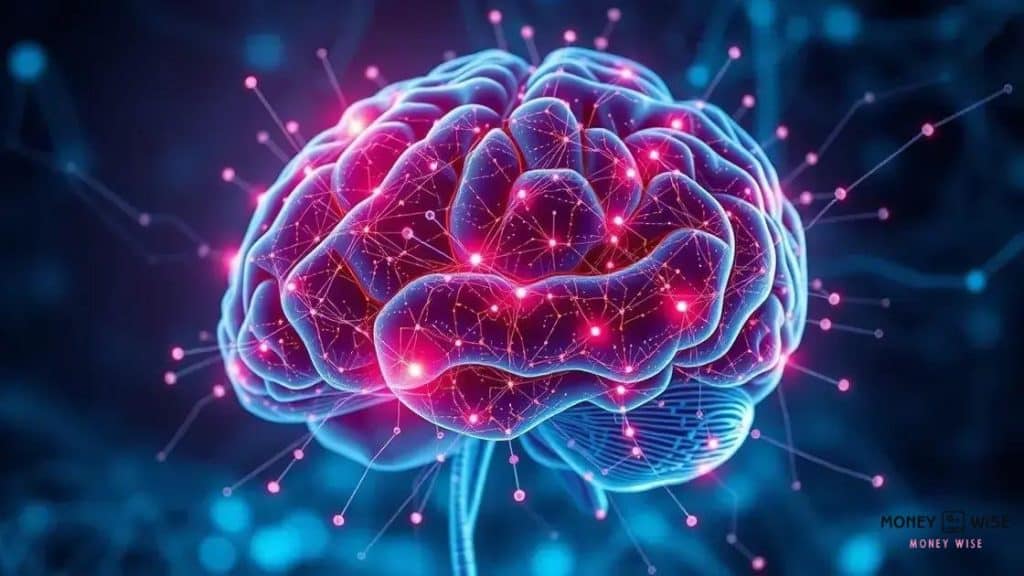Neurological enhancement technologies: unlocking your brain’s potential

Neurological enhancement technologies are innovations aimed at improving cognitive functions like memory and attention through methods such as neurostimulation, nootropics, and brain-computer interfaces.
Neurological enhancement technologies are rapidly advancing, making it possible to boost cognitive abilities and tap into untapped potential. Have you ever wondered how these innovations could impact your daily life? Let’s dive deeper into the world of brain enhancements.
Understanding neurological enhancement technologies
Understanding neurological enhancement technologies is essential for grasping how they can influence our minds and cognitive functions. These technologies aim to improve brain performance and enhance capabilities.
Types of Neurological Enhancements
There are several methods of enhancement. Each technology offers unique benefits:
- Neurostimulation: This includes devices that stimulate specific brain areas to improve function.
- Nootropics: Also known as “smart drugs”, these substances aim to enhance cognitive functions.
- Brain-Computer Interfaces (BCIs): These systems enable direct communication between the brain and external devices.
- Cognitive Training Programs: These interactive platforms focus on improving memory and problem-solving skills.
These approaches differ in methods but share a common goal: enhancing our cognitive abilities.
Potential Benefits
Many individuals seek out neurological enhancement technologies for various reasons. The potential benefits include:
- Increased focus and concentration, allowing for improved productivity.
- Enhanced memory retention, aiding in learning and knowledge acquisition.
- Better cognitive flexibility, facilitating problem-solving and creativity.
Understanding why people choose these enhancements sheds light on their growing popularity.
As we explore these technologies, it becomes clear that they have implications for education, work, and personal development. Neurological enhancement technologies may play a crucial role in our future, helping us unlock the full potential of our minds. By leveraging these innovations, individuals can navigate challenges more effectively and achieve their goals.
Types of neurological enhancements available
There are several types of neurological enhancements available today, each designed to improve different aspects of cognitive function. Understanding these methods can help individuals choose the right approach for their needs.
Neurostimulation Techniques
Neurostimulation involves using electrical impulses to stimulate specific brain regions. This method can enhance mood and concentration:
- Transcranial Magnetic Stimulation (TMS): Uses magnetic fields to stimulate nerve cells in the brain.
- Transcranial Direct Current Stimulation (tDCS): Applies a low electrical current to the scalp to improve cognitive processes.
- Deep Brain Stimulation (DBS): Involves implanting electrodes in the brain to regulate abnormal impulses.
These techniques have been researched for their potential to treat neurological disorders and improve mental performance.
Nootropics and Smart Drugs
Nootropics, often referred to as “smart drugs,” are substances that enhance cognitive function:
- Modafinil: Known for increasing alertness and reducing fatigue.
- Racetams: A group of nootropics that may enhance memory and learning abilities.
- L-Theanine: An amino acid that promotes relaxation without causing drowsiness.
The use of nootropics is growing as people look for ways to boost productivity and cognitive abilities.
Brain-Computer Interfaces (BCIs) represent another exciting frontier in neurological enhancement technologies. BCIs allow users to communicate with computers using their thoughts. They are still in development, but they hold great promise for individuals with mobility impairments and can potentially enhance cognitive engagement.
Cognitive training programs are also gaining popularity. These programs often come as apps or games designed to improve memory, attention, and problem-solving skills. They are accessible and can be tailored to individual needs.
Potential benefits for cognitive performance
The potential benefits of neurological enhancement technologies for cognitive performance are significant and diverse. Many individuals seek these technologies to improve their mental capabilities and overall productivity.
Enhanced Focus and Concentration
One major benefit is the increase in focus and concentration. By using devices like neurostimulation, individuals can experience greater mental clarity:
- Improved attention span: This can help in completing tasks more effectively.
- Reduced distractions: Minimizing the impact of external factors leads to better performance.
Such enhancements allow people to work more efficiently and achieve their goals without unnecessary interruptions.
Better Memory Retention
Another potential benefit of neurological enhancements is improved memory retention. Many users report that cognitive training programs help enhance their ability to remember information:
- Faster recall: Individuals can retrieve information more quickly when needed.
- Increased learning capacity: Enhanced memory can aid in grasping new concepts more effortlessly.
These improvements can be particularly beneficial for students and professionals who need to absorb large amounts of information.
Additionally, the ability to process information more rapidly is another key advantage of these technologies. As processing speed increases, daily tasks become easier and more manageable. This can lead to greater creativity and more innovative solutions in various fields.
Lastly, users often find that these enhancements lead to greater overall mental well-being. By boosting cognitive performance, individuals may experience reduced stress and better emotional regulation. This contributes to a more balanced and productive life.
Ethical considerations in enhancement technologies
Ethical considerations in enhancement technologies are crucial discussions as we advance in our understanding of the brain. These technologies can offer immense benefits, but they also raise important moral and social questions.
Access and Equity
One major ethical concern is access to these enhancements. Not everyone has the same opportunities to benefit from these technologies:
- Socioeconomic disparities: People from wealthier backgrounds may afford better access to enhancement technologies.
- Global inequalities: Different countries have varying availability and regulations, leading to imbalances in who can benefit.
- Potential for a cognitive divide: If only certain groups can access enhancements, it could create a wider gap in cognitive abilities.
These inequalities could have long-term effects on society and our workforce.
Safety and Health Risks
Another significant concern is the safety of these enhancements. While many technologies show promise, their long-term effects are often unknown:
- Side effects: Some enhancement drugs may have undesired physical or mental side effects.
- Long-term health impacts: The long-term effects of devices or drugs are still being studied.
- Risk of dependence: Over-reliance on enhancement technologies could lead to reduced natural cognitive abilities.
These health risks necessitate thorough research and regulation to ensure user safety.
Finally, the idea of “normal” cognitive function raises new questions. As enhancement technologies become more common, society may shift its understanding of what is considered typical. This could lead to pressure on individuals to enhance their capabilities, impacting personal choice.
The future of neurological enhancements
The future of neurological enhancements holds exciting possibilities as technology continues to evolve rapidly. Innovations are expected to enhance human cognition in ways we can only begin to imagine.
Advancements in Technology
We are already seeing significant advancements in neurotechnology:
- Brain-Computer Interfaces (BCIs): Future BCIs may allow for seamless communication between the brain and machines, opening new avenues for treatment and cognitive enhancement.
- More effective neurostimulation: Devices used for brain stimulation will likely become more refined, allowing personalized treatments for conditions like ADHD or depression.
- Artificial Intelligence integration: AI will likely play a pivotal role in developing customized enhancement solutions based on individual brain data.
These advancements promise to make enhancements safer and more accessible.
Societal Impacts
As these technologies mature, they may change society significantly. Enhanced cognitive abilities could lead to:
- Workforce changes: Greater demand for jobs requiring advanced cognitive skills.
- Ethical debates: Ongoing discussions about access, fairness, and the definition of “normal” will shape the conversation.
- Educational transformations: Learning environments could adapt to utilize enhancement technologies for better outcomes.
Such changes will ask questions about equity and fairness in access to these advancements.
In addition, the potential integration of these technologies into everyday life will raise new ethical concerns. Discussions about what it means to enhance human capability will become increasingly relevant as more people opt for these options.
FAQ – Frequently Asked Questions about Neurological Enhancement Technologies
What are neurological enhancement technologies?
These are innovations designed to improve cognitive functions, such as memory, focus, and problem-solving abilities.
How can these technologies benefit everyday individuals?
They can help enhance productivity, improve learning capabilities, and support mental health.
Are there ethical concerns regarding neurological enhancements?
Yes, issues like access equity, safety, and the alteration of what is considered ‘normal’ cognitive function are significant topics of discussion.
What types of enhancement options are available?
Options include neurostimulation devices, nootropics, cognitive training apps, and brain-computer interfaces.
How is access to these technologies being addressed?
Efforts are ongoing to ensure fair access for all individuals, regardless of socioeconomic status.





